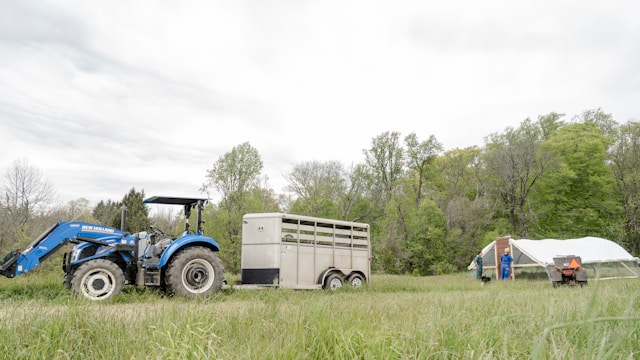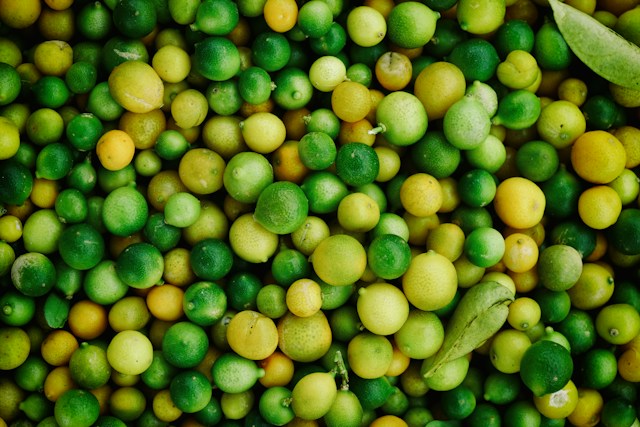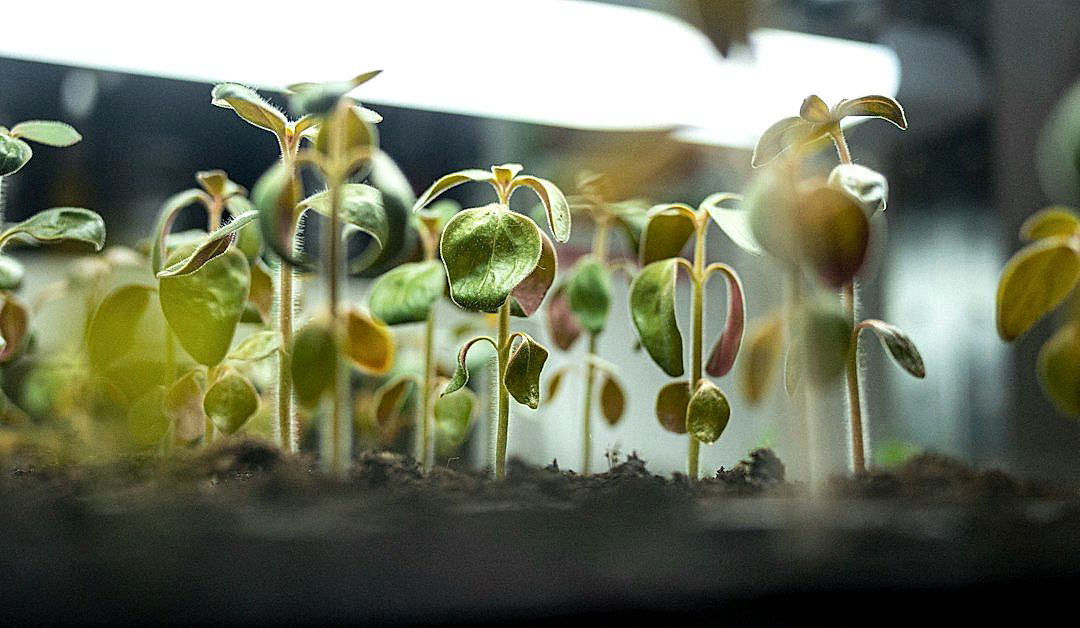Sustainable farming involves a myriad of important agricultural techniques aimed at protecting the environment, public health, human communities, and animal welfare.
Amid the skyrocketing demands of agricultural produce, bringing in volunteers aligns perfectly with this ethos.
On a global level, innovative engagement activities endorse this concept, mobilizing human resources, and making agriculture a cooperative endeavor.
The emphasis here is on small-scale farming, promoting biodiversity, and investing in young farmers’ training.
This approach has myriad benefits, acting as an antidote to unsustainable industrial agriculture.
Let’s delve deeper into understanding the role of volunteering in fostering sustainable produce farming.
Volunteer Initiatives Supporting Sustainable Produce Farming
1. Farm Aid: Supporting Small Scale Farmers
Established in 1985, Farm Aid is a nonprofit organization that has dedicated its mission to provide support to small scale farmers across the United States.
Their primary aim is to strengthen local and regional markets and working towards building robust, community-based food systems.
Support to farmers comes in various forms, including financial grants, resources, and services that help them to innovate, improve and sustain their farming practices.
However, beyond just providing resources, Farm Aid powers a topnotch year-round hotline and resource network designed to assist farmers navigate the multiple challenges they face in the industry.
Through concerts, events, and annual programs, Farm Aid not only raises awareness about the issues plaguing small scale farmers but also raises funds which go directly into supporting these farmers.
They believe in connecting farmers to the resources necessary to realize their dreams of creating thriving, self-sustaining farms that benefit the entire community.
Over the years, Farm Aid has raised more than $60 million to promote a strong, resilient family farm system of agriculture.
Every year, small scale farmers’ access these funds to help them move towards more viable, sustainable, and environmentally responsible farming practices.
In turn, this funding not only supports the economic viability of small farmers, but also aims to secure healthier, fresher food on shelves of local markets.
By championing for policy reform, Farm Aid places farmers’ needs and struggles at the forefront of agricultural policy discussions.
One exciting aspect of Farm Aid’s program includes various opportunities for individuals to volunteer their time and expertise towards supporting small scale farmers.
By offering your skills to this organization, you contribute to shoring up the foundations of sustainable, local farming.
In today’s world where industrial farming dominates, Farm Aid has set a standard of vibrant, robust support for small, sustainable, family farms.
They remain committed to improving conditions for small scale farmers through tangible support and resources tailored to the unique needs of every farmer they work with.
In the end, Farm Aid’s comprehensive approach to supporting small scale farmers continues to go a long way in making a significant difference that bolsters the overall health and sustainability of local food systems.
2. WWOOF: Promoting Organic Farm Practices
Worldwide Opportunities on Organic Farms, commonly referred to as WWOOF, is a key player in advocating for sustainable farming methods.
The initiative aims to lend a helping hand to organic farmers, thereby furthering the cause of organic and ecological farming.
Over time, WWOOF has grown to be an international network of organic farms and smallholdings, all united by the shared principle of promoting healthy and sustainable food production.
WWOOF plays a phenomenal role in connecting volunteers with organic farmers and growers, thus engendering a global community passionate about sustainable agricultural practices.
Via the WWOOF program, volunteers can learn an array of skills such as organic growing techniques, land preservation methods and knowledge about a sustainable lifestyle.
The cross-cultural exchange and knowledge transfer at WWOOF also give individuals a better understanding of the challenges that organic agriculture faces on a global scale.
WWOOFers, as the volunteers are lovingly addressed, also gain practical experience, which can be a priceless insight into the world of sustainable farming and organic products.
The organization seeks to offer real-life experiences that can enrich lives while teaching the importance of sustainable living.
The WWOOF experience does not simply revolve around volunteering on a farm; it is a convergence of mutual learning and exchange of ideas geared towards supporting and expanding organic farming.
WWOOF relies on the idea that the best way to learn is through practice, making it a fantastic opportunity for people to immerse themselves in organic and ecological farming practices.
It is an exceptional platform for those who are enthusiastic and curious to explore the world of organic farming, comprehend its implications, and make an impact on our ecosystem and farming communities.
Volunteers often leave with an enhanced appreciation and understanding of the effort it takes to grow food organically and the importance of sustainable farming practices.
WWOOF’s primary goal is to enable people to learn about organic food, farming, and sustainable living, thus turning its volunteers into ambassadors for the organic movement.
The network provides clear evidence of its potency in promoting better food production methods and encouraging the adoption of sustainable farming techniques.
WWOOF’s work supports the larger movement towards sustainable agriculture while highlighting the vital contribution of volunteers in achieving this goal.
3. FoodCorps: Teaching Responsible Farming
As producer-consumer awareness grows, FoodCorps seeks to teach responsible farming.
The main thrust of their efforts is to reach out to children who live in under-served rural regions.
Their mission centres on the belief that children can better understand the importance of healthy eating if they are involved in the food production process.
In addition to teaching children about where their food comes from, FoodCorps also works tirelessly to transform school gardens.
Their efforts create outdoor classrooms where children can learn about farming and sustainability in a hands-on environment.
FoodCorps believes that teaching kids about farming and sustainable practices can create a ripple effect that extends to families and communities.
FoodCorps partners with many schools across the country to launch farming projects and build greenhouses.
This hands-on education can have profound effects on a child’s diet, affecting not only what they eat, but how they relate to the food they consume.
Kids who are involved in food production are more likely to make healthier food choices
FoodCorps volunteers work closely with children, providing lessons on how to plant, grow, and harvest food.
This program not only educates children on sustainable practices, but also instills in them the importance of nature and our responsibility towards it.
FoodCorps’ mission ensures that future generations will carry forward the necessary knowledge for maintaining sustainable agricultural practices.
Their impact is not limited to just the children, families and the wider community also benefit from these programs.
FoodCorps is aligned with the global mission of promoting sustainable farming and food habits.
By working at the grassroot level, they are empowering communities with the knowledge and practices to sustain themselves and the environment.
Ultimately, FoodCorps aims to build a nation of children who think critically about what they eat and understand the impact of their food choices on the planet.
4. Organic Volunteers: Encouraging Organic Farming
Organic Volunteers is a notable initiative that drives the movement for sustainable produce farming by encouraging organic farming.
The organization offers a global platform for farmers who practice organic farming methods, and cultivators willing to adopt these practices.
One of the primary roles of Organic Volunteers involves connecting farmers with volunteers locally and internationally.
These volunteers provide much-needed manpower, aiding in a variety of farm tasks and in the process, absorbing vital lessons about the importance of organic farming methods.
Organic Volunteers serves as a bridge between organic farmers and people interested in learning more about this sustainable way of farming.
By diving into the practical aspects of organic farming, these volunteers get a first-hand understanding of the critical benefits and impacts of organic practices.
In exchange for their service, volunteers often receive food, accommodation, and an invaluable educational experience.
This experience sparks consciousness about sustainable agriculture among the volunteers who, in turn, spread the word in their private circles.
The Organic Volunteers organization also presents a unique opportunity for networking among organic farmers.
Through this platform, farmers from different countries can share knowledge, brainstorm solutions to common problems, and raise awareness about the importance of organic farming.
This collaboration creates a support system, boosting the expansion and sustainability of organic farming practices globally.
Furthermore, Organic Volunteers supports farmer-led research in organic farming advancements.
By supporting research, Organic Volunteers is proactively contributing to the future of sustainable farming and aiding in the discovery of greener farming techniques.
The role of initiatives like Organic Volunteers is crucial considering the alarming rate of environmental degradation and climate change exacerbated by traditional farming methods.
In the fight against environmental damage, encouraging organic farming is a significant step.
By merging volunteerism with a crucial cause like organic farming, Organic Volunteers skillfully escalates the progress towards a sustainable future.
5. GreenHands: Restoring Degraded Agricultural Lands
Initiating our focus on GreenHands, it stands out as an exceptional volunteer-driven initiative dedicated to restoring degraded agricultural lands.
The organization seeks to promote sustainable agriculture by helping lands destroyed by irresponsible farming methods and natural disasters find their potential again.
Notably, they envision a world where sustainable farming practices are common and productivity of lands is maximized.
Volunteers, usually with a passion for farming and nature, are the backbone of the function and success of GreenHands.
Members invest their time and efforts in understanding the specific problems faced by the degraded lands and seek to provide the best suitable solutions.
Tasks taken up by volunteers range from cleaning up the land, planting trees, improving soil health, and educating farmers and local community about sustainable farming techniques.
GreenHands not only engages individual volunteers but also seeks partnerships with corporates, encouraging them to adopt farmlands and support their restoration.
Moreover, the organization provides opportunities for people to learn about farm management, permaculture, and organic farming through workshops.
It is pivotal to note that GreenHands takes proactive steps in deploying well-proven and tested methods to revive the fertility of degraded lands, with a focus on enhancing ecological balance.
Despite the challenges in the process, their consistent efforts have resulted in the revival of numerous lands, thereby adding to the overall goal of sustainable farming.
Their model is simple yet impactful: make practical changes on the ground and inspire others to adopt these sustainable practices.
Engaging with local communities, raising awareness, and bringing individuals together for a collective cause has made a significant difference, facilitating the growth of healthy ecosystems.
Through education and action, GreenHands is not only restoring degraded lands but also building a network of individuals committed to sustainable farming.
Therefore, the impact of GreenHands stretches beyond the physical restoration of lands, contributing to the larger goal of promoting sustainable farming practices.
Clearly, GreenHands exemplifies the powerful role that volunteer-run initiatives can play in advocating for and working towards more sustainable agricultural practices.
The Bottom Line
Each of these organizations, Farm Aid, WWOOF, FoodCorps, Organic Volunteers, and GreenHands, make grand strides towards promoting sustainable, ethical, and responsive agribusiness practices.
By investing in small farmers, promoting organic techniques, teaching farming responsibility, encouraging organic farming, and restoring degraded lands, they work tirelessly to ensure a healthy, ethical and sustainable future for agriculture.
It’s evident that their individual and joint efforts are vital to maintain the equilibrium of our ecosystem and promote a more balanced, fair, and sustainable food system for generations to come.




